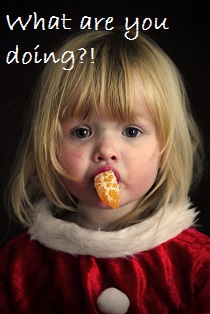Verbs are the words that tell us what people are doing. These words are important for younger children, particularly when they are starting to link words together. A good range of verbs is also important for older children to help with literacy in school. Here are some ideas to help develop verbs.
For younger children:-
- To make sure that your child understands a range of verbs, try singing action songs like “If you’re happy and you know it clap your hands, brush your hair” etc or “This is the way we drink our juice, wash our hands” etc (you can sing this to the tune of ‘Here we go round the mulberry bush’). When your child has practised the song with you, try stopping when you get to the verb and see if they can fill in the gap.
- Talk about what you are doing e.g. Daddy reading, Mummy walking etc You could encourage your child to go and see what other people are doing, or look in books and talk about what the characters are doing. If they find it hard to give you the right word, you could give them a choice e.g. “Is she eating or sleeping?”
- When you are playing, talk about what the toys are doing, “Thomas is stopping, now he’s ready to go” or “look, Teddy’s sleeping” You can narrate what your child is doing whilst they play. Hopefully they will join in!
- Play Simon Says type games giving simple instructions for your child to follow e.g. “Simon Says walk?”, “Simon Says jump?” etc. If your child does not respond, or does the wrong action, show them what to do “Look, I’m jumping, can you jump?” Begin by repeating the same few verbs, then introduce more. Let your child have a turn at giving the instructions too; all children love playing teacher!
- If your child continues to have difficulty with verbs, choose 2-3 simple actions and focus on them for a few weeks. Try to use them as often as you can in everyday life and play situations.
For older children:-
- Pick a basic verb and see how many other verbs you can think of that mean nearly the same thing. For example for ‘eat’ you could have ‘consume’, ‘devour’, ‘nibble’ or ‘snack’. Having a good range of vocabulary is critical for making progress within the national curriculum. If appropriate, you/ your child could look up similar words in a dictionary or look online. Talk about the words to ensure your child understands them.
- Make a basic sentence and try and change the verb – see how many different verbs will fit. For example “They …….. the food”, you could have ate, cooked, prepared, chopped, stirred, bought etc.
So, whatever your age, practising verbs is important; whether you are just starting to talk and link words, or whether you need to improve your vocabulary.







Leave a Reply